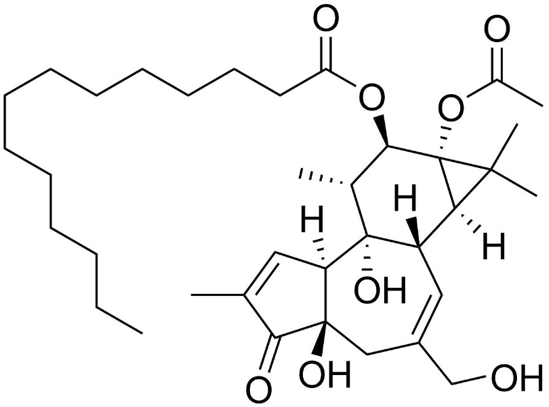Our therapeutic targets include Acute Myeloid Leukemia (AML), Hodgkin’s Lymphoma (HL), Parkinson’s disease (PD), and Acute Respiratory Distress Syndrome (ARDS). Clinical studies prior to PhorMed have indicated that RP-323, derived from croton oil of the plant Croton tiglium L., could modulate the differentiation of malignant cells via multiple molecular pathway with respect to Oncology/Hematology. We have since discovered new uses for this molecule in the areas of Neurology and Inflammation.

Proper cell function relies on proliferation, differentiation, and apoptosis. Errors in the DNA disrupt this process and lead to disease states such as inflammation, cancer, blood disorders, and neurological disorders.
Our preliminary clinical studies have shown that RP-323 could repair these errors in the cell and bring the cell cycle back to normal pathways through a process called phosphorylation.
In addition to its curative therapeutic value, our studies have indicated that RP-323 is able to enhance the immune system through cytokine induction with 85-90% efficiency.
The strength of our body’s immune system is crucial in the treatment of cancerous diseases.
Our approach to alleviate these diseases are at the forefront of genomic research.